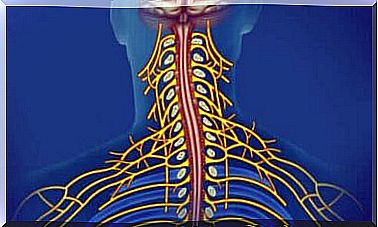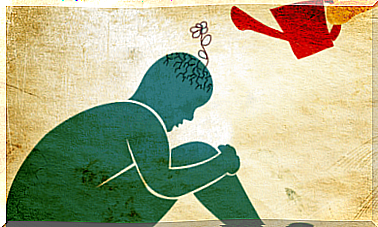Meeting Our Pain And Overcoming It Makes Us Stronger

Pain is part of our existence. From the moment we are born, we are exposed to the volatility that life brings, as well as the frustration that arises from the dissatisfaction that our desires are not always granted. It is therefore important to know how to deal with and overcome pain in order to move within a framework in which the level of suffering remains acceptable.
First and foremost, we need to distinguish between pain, sadness, and melancholy. This distinction is important because these terms are often used colloquially as synonyms, although they are not synonymous.
“Sadness encompasses many states in which psychological pain is triggered by the importance of a particular situation to the subject.”
Hugo Bleichmar
Do we feel sad or melancholy when we encounter our pain?
Knowing how to deal with our pain is crucial in order to be able to look ahead again.
Sigmund Freud, father of psychoanalysis, pointed out important differences between the concepts. For although they resemble each other, or at least have the same collective imagination, they are different. In his masterpiece, Mourning and Melancholy , in particular , the scientist tries to elaborate on the points in which the two concepts differ.
Freud stated literally: “Grief is the response to the loss of a loved one or an abstraction that functioned as an ideal, freedom, and so on. Identical influences trigger melancholy instead of sadness in many people. “
In a way, Freud affirmed that grief is an emotion that need not be pathological and that affects the subject who has lost a loved object. However, grief is a feeling that reacts to normal parameters. Melancholy, on the other hand, is more related to something pathological.

Both psychological processes would have similar characteristics, with the exception of one fundamental point. In both states pain is felt, there is no interest in the outside world and one is not open to a new object of love. In melancholy, however, a disturbance of the feeling of pain occurs, which affects one’s own ego, which does not happen in healthy grief and impairs one’s own integrity.
Facing our pain enables us to get to know each other holistically
Emotional life is directly related to the human psyche. It thus has a direct or indirect effect on physical or biological well-being. As a rule, today’s society, and the individual in particular, underestimates the importance of emotions.
As soon as a person shows a symptom, such as insomnia or depression, they want the symptom to go away as if by magic, and to do this they resort to a drug that is supposed to make their life easier. However, it is very difficult to make such symptoms disappear permanently if holistic psychoanalytic work is not carried out.
Medicine, more precisely psychiatry, strengthens the behavioral theory of stimulus reactions in order to eliminate all kinds of symptoms. The idea is that with the right medication, every patient can return to their normal everyday life, as the symptom is suppressed or significantly reduced, at least for a while. In many cases, however, medication is just a thick carpet under which the symptom, the manifestation of the disease, is swept, so that the actual cause of the disease remains.
If one day the drug is stopped, the symptom will reappear. And even if people continue to take medication, the disease can find other forms of expression to make itself visible, which is detrimental to a person’s quality of life.
The encounter with our pain helps us to get to know ourselves.

A symptom is always an informational element. This element indicates that something is happening in the subject’s soul life that is not so good. By silencing that voice, we lose information about what is happening. This makes it more difficult to intervene specifically with regard to the disease. This is why proper clinical evaluation is so important before any intervention is initiated.
To this end, psychotherapy offers the opportunity to set new parameters in order to see the world from a different perspective. To discover a new point of view that knows less about the pain and more about satisfaction and gratitude.
We should remember that our suffering is something very subjective, which is why it is only the person himself who can know what is really hurting him. A psychologist will be able to understand from the patient’s history which unsatisfied desires are the source of his or her discomfort.









